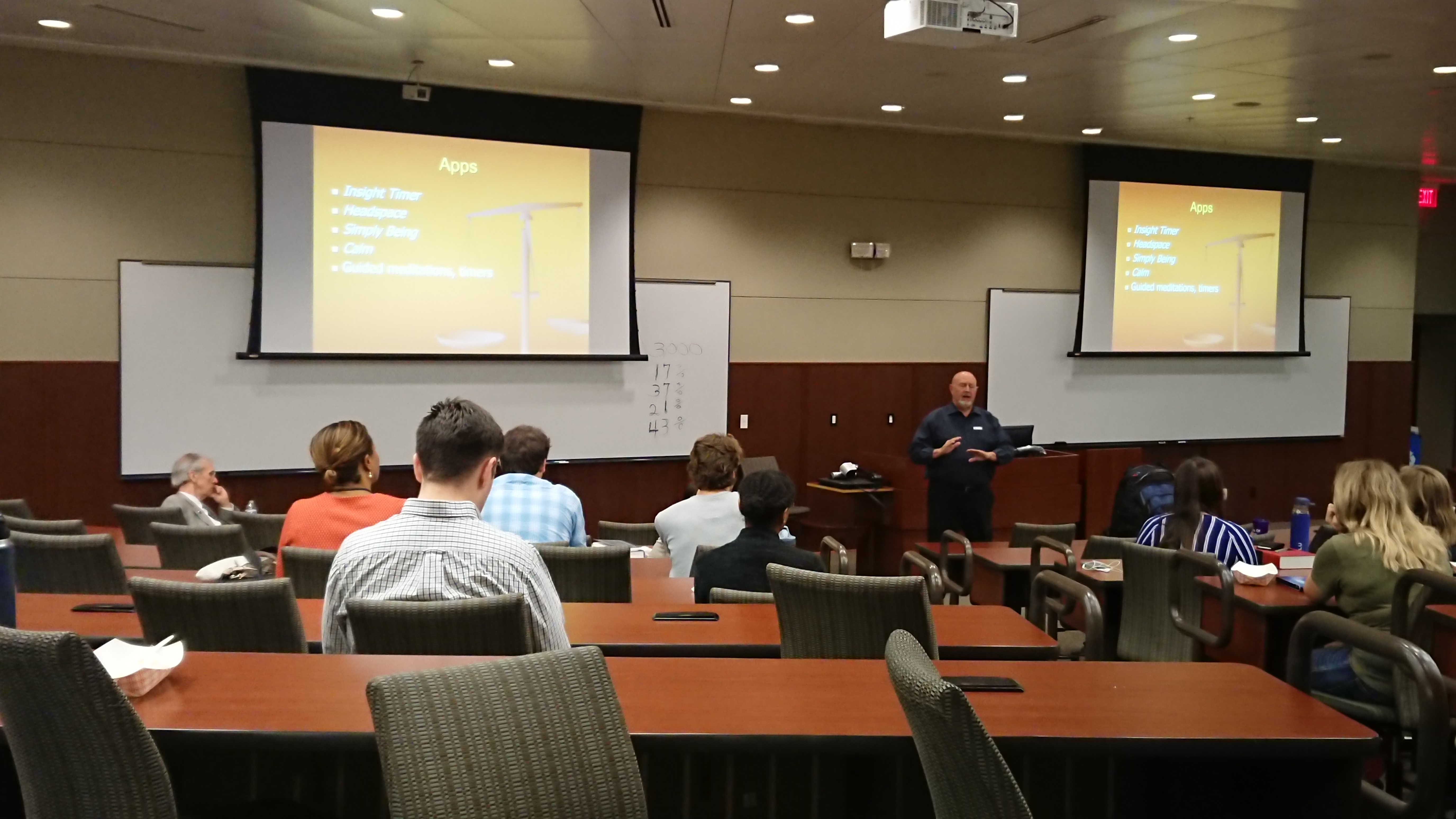Many Tennessee law students learned about the many mental health resources available to them during Law Student Mental Health Day on October 10. The day, which was planned by the ABA’s Commission on Lawyer Assistance Programs, the Law Student Division, and the Young Lawyers Division, is designated as a time for law schools and students to foster programs and events that will break the stigma and myths associated with depression, anxiety, and mental health issues, which can arise for the first time, or become more severe, during law school. Several special programs were held Wednesday for Tennessee law students.
At the University of Memphis Cecil C. Humphreys School of Law, students participated in a mindfulness workshop presented by Judge Butch Childers. The workshop provided students with skills for coping with stress, anxiety, and depression. Judge Childers is a former Circuit Court Judge for the 30th Judicial Circuit in Memphis who, since his retirement, has dedicated his time to educating lawyers and law students on mindfulness and well-being.
The Vanderbilt Bar Association hosted a pumpkin decorating activity, which allowed students to de-stress and get information on wellness and mental health issues. Vanderbilt University also has an annual wellness week for law students later in the school year, which includes information sessions, workshops, and other activities.
National Mental Health Day at law schools is an important way to highlight the mental and behavioral health issues facing our law students, but in Tennessee we don’t stop at a day. Law student well-being issues are addressed throughout the year through the collaborative efforts of TLAP, the Board of Law Examiners, and the Tennessee law schools.
The Tennessee Supreme Court, when it established the Tennessee Lawyers Assistance Program (TLAP), included law students in the program. Students in Tennessee law schools benefit from the services of TLAP every day. TLAP extends help to any students who may find themselves in crisis or who just need a supportive environment to discuss their current concerns. One-third of all referrals in 2017 were law students and bar applicants.
Every year, representatives from the Board of Law Examiners and TLAP speak to first-year and third-year law students in all of Tennessee’s law schools. In these presentations, TLAP discusses the potential behavioral health pitfalls of law school and how students can insulate themselves from behavioral health issues. With early intervention, law students enter the practice of law with the skills necessary to handle the stress of law practice.
“These joint presentations to law students stress the importance of law student well-being,” said Lisa Perlen, executive director of the Board of Law Examiners. “The Board of Law Examiners applauds the work of TLAP with our Tennessee law students.”
Additionally, the Board of Law Examiners invites TLAP to participate in an annual meeting with Tennessee law school deans to take a look at the issues being addressed with the law students and to work on collaborative wellness programming.
In 2017, TLAP hosted a monthly support group for law students in the Nashville office. Later in 2018, the program will be expanded to a video support group so law students statewide can participate.

